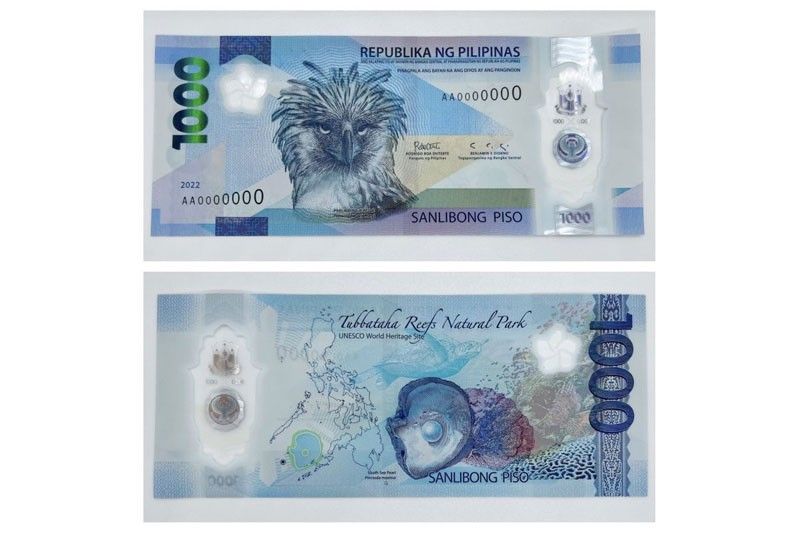BSP says folded polymer banknotes still valid for payment

MANILA, Philippines — The Bangko Sentral ng Pilipinas has clarified that folded polymer banknotes can still be circulated and used for payment amid posts on social media about some business establishments refusing to accept crimped notes.
"The BSP informs the public that folded banknotes, whether paper or polymer, can still be circulated and accepted for payment. As such, retailers and banks should accept them for day-to-day payment transactions," the central bank said in a statement sent out Monday evening.
The central bank issued guidelines in past weeks on how the public could best take care of these newly-issued P1,000 bills in a bid to "safeguard their integrity and prolong their lifespan."
The BSP undertook an information offensive to defend its decision to transition from abaca-based paper money to polymer, which the regulator said was “more durable and therefore more cost-effective than paper banknotes.”
The old P1,000 paper bill is still in circulation.
The BSP advised the public to use a bi-fold wallet, which they say is ideal for the note's storage, and even listed down tips on how to clean it, which raised brows on social media in past weeks.
Reacting to the social media hubbub, Sy-owned mall chain SM Retail Stores said in a statement on Monday they would still accept folded bank notes unless these bills were tampered with excessively. These new notes featured the Philippine eagle, touted by the national government in 1995 as the country's national bird.
"Only those that are mutilated - stapled and ripped caused by removal of staple wire - will be deemed unfit and not accepted," the company said in a statement.
Last April, the BSP and the Philippine National Police took legal action against a Tiktok user for burning a P20 bill. The BSP said they would "pursue the case until conviction."
Presidential decree 247 signed in 1963 criminalized the defacement and mutilation of notes and coins. Such an offense could result in five-year imprisonment and a P20,000 fine.
- Latest
- Trending


























